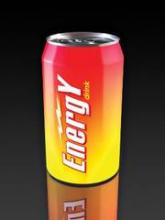It’s unclear if and to what extent food, drinks, and supplements containing caffeine are dangerous for adolescents and young adults, according to a 166-page summary of an Institute of Medicine workshop released Jan. 17.
The 2-day workshop came about at the request of the Food and Drug Administration as an intelligence gathering exercise. The FDA is considering restrictions on such products because of safety concerns, with warning labels and limits on caffeine levels among the options.
The agency needs to "get the science right" before it acts, said Michael Taylor, deputy commissioner for foods and veterinary medicine.
There was no unanimous call at the workshop to ban the products, which are fizzy beverages that come in cans or syrups in small twist-top bottles. Instead, the speakers, who were academic researchers and physicians, expressed concern based on study results and their own experiences. Some said they’ve seen serious side effects from energy drinks, but others said they haven’t and blamed the concern on media hype.
Most of the presentations were about caffeine use in general, not energy drinks in particular. There simply hasn’t been much study of the products, a problem noted by many speakers, some of whom called for a national registry to systematically track adverse events.
Energy drinks have been associated with an increasing number of emergency department visits and several sudden cardiac deaths in teens and young people, but it is unclear what role the products played in these events.
Certain populations might be most at risk. The majority of deaths seem to have been in teen and young men with underlying cardiac problems who were engaged in sports or other physical activities. Genetic differences in caffeine sensitivity may be at work as well.
If there is a risk with energy drinks, it’s "probably very small," said Dr. Jeffrey J. Goldberger, professor of medicine and director of the Program in Cardiac Arrhythmias at Northwestern University in Chicago.
With an estimated 6 billion caffeinated energy drinks sold in the United States annually, a larger problem would have been apparent by now. Also, while there are data indicating a dose-dependent effect of caffeine on heart rate and blood pressure, the prevailing evidence suggests caffeine has no effect on arrhythmias, beyond anecdotal reports, he said.
Nonetheless, the deaths and emergency department visits "are absolute safety signals," said pediatric cardiologist Dr. Steven Lipshultz, chairman of the pediatrics department at Wayne State University in Detroit.
Until energy drinks are proven safe, it would be wise to ban their sales to kids and teens, he said.
U.S. poison centers received 6,724 energy product calls from June 2010 to July 2013. Outcomes were minimal in most cases, with no problems or temporary problems such as hyperactivity or agitation. Tachycardia and other moderate effects were reported in about 10% of calls, and "serious harms" reported in less than half of 1% (29 calls). One death was reported in 2011, according to a review by Dr. Alvin C. Bronstein, medical director of the Rocky Mountain Poison and Drug Center in Denver.
The number of calls to the poison center about energy drink has been about level since 2012.
Energy drinks contain about the same amount of caffeine as coffee, somewhere in the range of 200 mg per serving – more in some products and less in others. About 10% of 13- to 24-year-olds report using them, the highest of any age group, but far fewer than the number that report drinking coffee, soda, or tea. In a survey of 1,000 college seniors, more than 60% reported using energy drinks in addition to other caffeinated beverages.
The products typically come with more than just caffeine; glucuronolactone, taurine, vitamins, and herbal extracts are common ingredients. As with energy drinks themselves, the effects of those ingredients when mixed with caffeine is not well studied. The evidence that exists suggests that, if anything, most additional ingredients inhibit the adverse effects of caffeine, said Stephen W. Schaffer, Ph.D., a hypertension and diabetes researcher at the University of South Alabama in Mobile.
Energy drinks account for just 1%-4% of U.S. caffeine intake depending on age group, and have not led to an overall increase in the amount of caffeine Americans consume, said registered dietician Diane Mitchell, department of nutritional sciences at Pennsylvania State University in State College, Pa.


